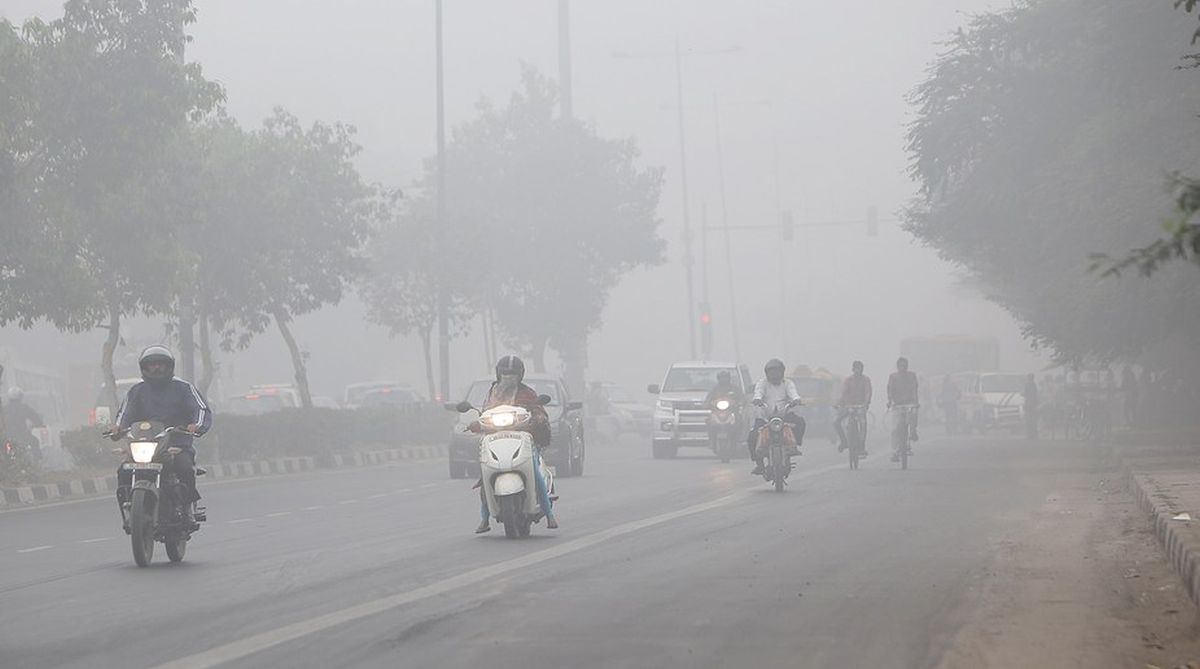Delhi and the National Capital Region (NCR) on Sunday witnessed ‘very poor’ air quality with the minimum temperature recorded at 12.4 degrees Celsius, two notches below the season’s average, the Met office said.
“The sky will be clear with shallow fog in the early part of the day,” an India Meteorological Department (IMD) official said.
Advertisement
The air-quality across the NCR was very poor, according to System of Air Quality and Weather Forecasting And Research (SAFAR).
The humidity at 8.30 a.m. was 87 per cent. The maximum temperature was likely to hover around 28 degrees Celsius.
Saturday’s maximum temperature settled at 28.3 degrees Celsius, a notch below the season’s average while the minimum temperature was recorded at 12 degrees Celsius, two notches below the average.
On Saturday, after a slight improvement in morning, Delhi’s air quality again turned ‘severe’ by evening due to unfavourable weather conditions and significant increase in pollution from stubble burning, authorities said.
The pollution level had dipped marginally on Saturday morning with air quality index of 394 but by evening the pollution again dropped from ‘very poor’ category to ‘severe’ level and an AQI of 403 was recorded.
On Saturday, the PM 2.5 (particles in the air with a diameter of less than 2.5 micrometres) level was recorded at 261 while the PM10 (particles in the air with a diameter of less than 10 micrometres) was recorded at 416 in Delhi, according to data by the Central Pollution Control Board (CPCB).
Twenty areas in Delhi recorded severe air quality while 15 areas recorded very poor air quality, according to the CPCB.
Ghaziabad, Faridabad and Greater Noida recorded severe air quality while Noida and Gurgaon recorded very poor air quality, according to the CPCB.
An AQI between 0 and 50 is considered “good”, 51 and 100 “satisfactory”, 101 and 200 “moderate”, 201 and 300 “poor”, 301 and 400 “very poor”, and 401 and 500 “severe”.
According to the Indian Institute of Tropical Meteorology, the increase in PM 2.5 concentration is due to stable meteorological conditions, trapping of pollutants in Delhi (very less dispersion) and significant increase in contribution from stubble burning.
Stubble burning in neighbouring states of Delhi on Thursday was the “largest-ever recorded” this year which might lead to a further deterioration in the already “severe” air quality of the national capital, the IITM said Friday.
(With inputs from agencies)











